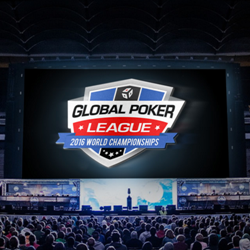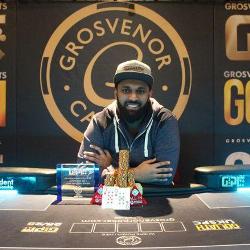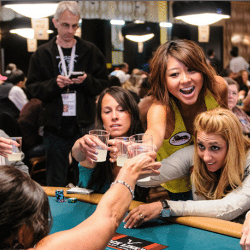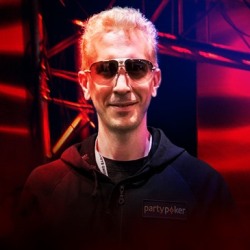How Did the Inaugural GPL Fare?

With 2016 having drawn to an end, it’s time to take stock of the year just passed, which in the world of poker includes taking a closer look at the inaugural season of the Global Poker League (GPL). While Season One closed out with the Montreal Nationals beating a field of 12 teams to win the League and its $100,000 cash prize, what’s not clear is whether the Global Poker League itself proved a success. Furthermore, did Alexandre Dreyfus make progress toward his goal of making poker a spectator sport? Let’s answer these questions by taking a look at the good and bad to come out of the Global Poker League season.
Positives
On the plus side, the poker community was initially enthusiastic as the Global Poker League got underway, and early views expressed were generally favorable. Those in the industry were impressed with Dreyfus’ drive and ambition, and the league’s owner proved to be a master in stimulating interest via numerous announcements he released about the GPL. In addition, the team logos exceeded expectations, and the draft itself was very entertaining.
In order for poker to become a true spectator sport, however, it first needs to have star power behind it, and the Global Poker League managed to do just that by attracting some notable pros. Even though the league struggled as the season went on, the pros that were drafted to the various teams continued to show up for tournaments, and were genuinely invested in seeing it succeed. With PokerStars now the official sponsor for Season Two, it’s likely that this trend will only continue in the future.
Negatives
On the flip side, the novelty wore off fast, and once games finally got underway, the Global Poker League did not hold the interest of spectators for long. The Live Cube was not as impressive as artists’ renderings depicted it, and many people said that watching games wasn’t any more exciting than watching a Twitch stream of pros playing online poker. No real story lines emerged, and many people stopped tuning into matches by the end of the season.
Another factor which plagued the GPL’s inaugural season was that its merchandise arrived late. While fans could purchase a t-shirt or a hat with their favorite team’s logo on by the time Season One closed out, it nevertheless took months to reach this point, and only three pieces of merchandise were subsequently released per team when these items did finally hit the market.
In addition, the league lacked structure and although Dreyfus put a lot of thought into how the GPL would work as a big picture, a lot of the small details were left undefined. This led to changes in team sizes and the playoffs mid-season, as well as other inconsistencies that annoyed fans, and made the league seem less than professional.
Looking Forward to Season 2
All in all, the Global Poker League did not make good on all of the promises set forth when the league was announced. That said, the poker community will now be looking to see whether Dreyfus can turn things around for Season Two.
GPL Breaks into Chinese Market
In the meantime, the Global Poker League announced last month that in 2017 it would be launching an Asia-exclusive version of the league, with each team hailing from a city within China. The competition is set to feature the following eight teams:
Beijing Great Dragons, Chengdu Pandas, Guanghzou Pioneers, Hangzho Legends, Shanghai Golden Tigers, Shenzhen Eagles, Tianjin Guardians, and Xi’an Warriors.
The goal of GPL China is to position itself within the country’s popular eSports scene, which enjoys a fervent following. In fact, China is believed to have around 400 million active gamers who each year spend around $17.6 billion, and within this group are 170 million eSports fans who in 2015 contributed $4 billion in revenues.
A few hurdles lie in the way of Dreyfus’ ambitions, though, not least the fact that it is against the law to gamble is Mainland China. While Dreyfus is seeking to have the game of poker recognized as a “mind sport” in China, in the past several poker tournaments have been raided by Chinese authorities despite their organizers having apparently obtained the required license.










